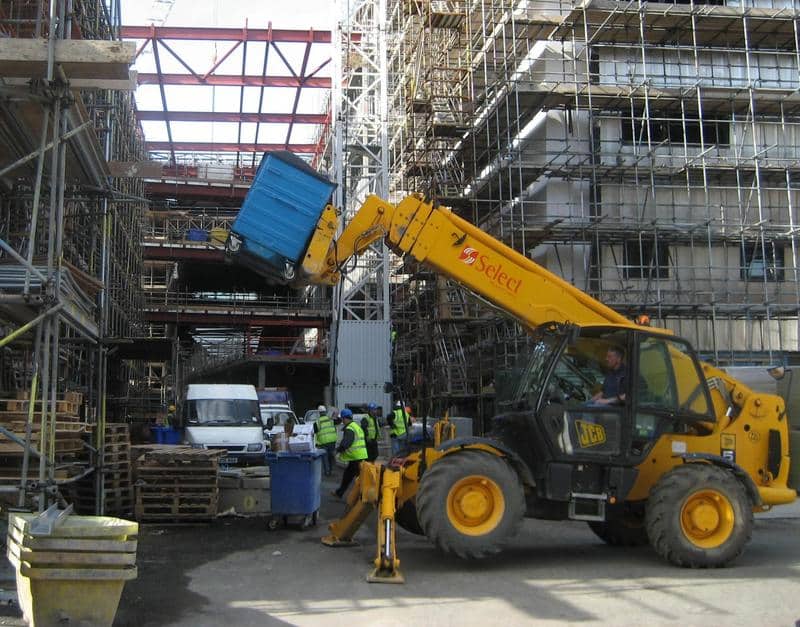The SWMP will be expected to outline just how the developer plans to minimise the waste produced by their scheme, as well as how they aim to comply with waste controls, with failure to produce a SWMP leading to the prosecution or receiving a fixed penalty notice.
Tomorrow (March 20) sees the end of a Defra-led informal consultation relating to the legislation, aiming to develop non-statutory guidance to be issued at the same time as the SWMPs become a legal requirement.
The draft regulations give responsibility for the enforcement of the SWMP to both the Environment Agency and local councils.
However, local authority officials have indicated their uncertainty over councils' exact role within the enforcement of the guidelines, with the possible effect this might have on the legislation's effectiveness.
While a role for local planners is envisaged by some, the Defra consultation document indicates that it expects enforcement to rest with “local environmental quality, environmental health or trading standards enforcement teams”.
But, with no firm guidance set to be issued until the legislation is introduced, councils remain unclear as to just what is expected of them in terms of enforcement.
Joy Blizzard, waste initiatives officer at the Shropshire Waste Partnership, told letsrecycle.com: “They need guidance as soon as possible; they need to know what beast they're dealing with.
“They're anxiously awaiting the guidelines so they need to know which section of the council's going to deal with it,” she added.
Burden
Despite the uncertainty among local authorities, the Environment Agency has indicated that it expects councils to take the majority of the burden with regards enforcing the SWMP regulations.
“Local authorities have a greater role, because they have a lot more control on construction projects, and they will be down on the sites a lot more regularly,” a spokesman for the agency told letsrecycle.com.
Regardless of the manpower behind their enforcement, I think the industry will want to respond positively to the introduction of the plans.
Estelle Herszenhorn, WRAP
He added: “Our general enforcement position is that we take a risk-based approach, we will target our inspections and carry out appropriate action.”
For its part, Defra has reiterated its position that firmer advice to both construction companies and those involved in enforcement can only be issued once the consultation has been completed.
A spokeswoman for the department said: “Once we've seen people's views then we will set things out in more detail.”
Effective
Despite the situation regarding enforcement meaning that self-regulation is likely to play a large part in the SWMPs, there is still enthusiasm that the plans will prove to be a success.
Estelle Herszenhorn, construction project manager for waste management at the Waste and Resources Action Programme (WRAP) said that she believed that SWMPs would prove to be effective.
“One of the aims of WRAP is to improve waste minimisation and SWMP are a key framework for achieving that,” she said. She added: “The discipline it will instil in terms of monitoring and reporting will only help in the long run.
“Regardless of the manpower behind their enforcement, I think the industry will want to respond positively to the introduction of the plans,” she concluded.
And, despite her anxiety over local authorities' exact role in enforcement, Ms Blizzard was also positive about the level of awareness among councils relating to the actual introduction of SWMP.
“There is a high level of awareness that the plans are coming in among those responsible for waste,” she explained.
Template
In the lead up to the new legislation being brought in, various resources claiming to make the implementation of SWMPs easier for construction firms have been introduced.
WRAP has provided a template on its website to assist companies in developing a plan, which has received 700 downloads since going live in late February, as well as running workshops in association with Envirowise.
Meanwhile, consultancy Axion Recycling has launched a service offering to produce full SWMPs, including writing the plans, auditing a company's waste production, managing waste, organising its collection and recycling and also monitoring and evaluating the plans.
Axion's commercial director Roger Morton said: “Interest and feedback in our service is very positive. Particularly popular is our advice hotline for the duration of the project offering companies' information on UK-wide outlets for recycling different types of materials.”












Subscribe for free